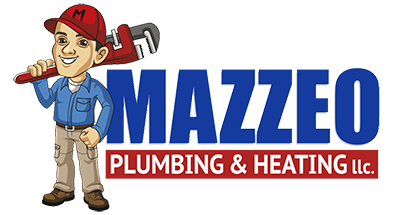Noisy pipes are a common issue in many homes that can cause significant discomfort and suspicion of larger plumbing problems. Understanding the causes of noisy pipes equips homeowners and property managers with the knowledge needed to address these disturbances effectively. This article examines the common causes of noisy pipes and presents practical solutions to maintain a quiet and efficient home plumbing system.
- The most frequent causes of noisy pipes include water hammer, air in the pipes, loose pipe fittings, and high water pressure.
- Effective solutions range from basic plumbing maintenance to professional pipe repair and installation of specialized devices.
- Timely intervention by an emergency plumber can prevent further damage when pipe noises signal potential leaks or faults.
- Proper plumbing maintenance not only reduces noise but also extends the lifespan of the home plumbing system.
- Understanding both the causes and remedies helps maintain a quieter home environment and avoids costly repairs.
Causes of Noisy Pipes and Effective Solutions
Noisy pipes refer to audible sounds such as banging, knocking, or hissing that originate from within a home's plumbing system. These noises often indicate underlying mechanical issues that could compromise the functionality of the system. Identifying the causes of noisy pipes is critical for implementing effective solutions that ensure a safe and efficient water supply system.
Introduction
Noise emanating from pipes can arise at any time due to various reasons linked to both water flow dynamics and structural concerns within the plumbing network. These noises are relevant to homeowners, landlords, property managers, and plumbing professionals involved in home plumbing maintenance. Recognizing when and why pipe noises occur aids in proactive care and timely repair, preventing potential water damage or costly replacements.
Main Section
Common Causes of Noisy Pipes
Multiple factors contribute to the generation of noisy pipes, with some of the most prevalent causes detailed below.
- Water Hammer: A sudden change in water flow velocity creates a shockwave that produces loud banging noises inside the pipes. Often caused when valves or faucets close abruptly, water hammer can stress the plumbing system.
- Air in Pipes: Trapped air bubbles within pipes can cause vibrating or knocking sounds when water flows. This is especially common after recent plumbing work or system draining.
- Loose or Improperly Secured Pipes: Pipes that are not firmly fastened to structural elements can move and collide with framing materials, producing rattling or knocking sounds during water movement.
- High Water Pressure: Excessively high water pressure inside the plumbing can cause pipes to vibrate or produce noise, potentially damaging the plumbing fixtures and piping.
- Thermal Expansion: When hot water travels through pipes, the metal expands, sometimes causing creaking or ticking noises as the pipe adjusts to temperature changes.
Effective Solutions for Noisy Pipes
Addressing noisy pipes requires identifying the specific cause and applying the appropriate repair or maintenance method. The following outlines typical solutions relevant to each common cause.
- Water Hammer Arrestor Installation: Installing devices such as water hammer arrestors or air chambers can absorb sudden water pressure changes, eliminating banging noises. These devices are installed near valves prone to rapid closing.
- Bleeding Air from the System: To remove trapped air, plumbing maintenance may include opening faucets fully to allow air to escape or using specialized valves. Regular system flushing can prevent air accumulation.
- Securing Loose Pipes: Fastening loose pipes to wall studs or ceiling joists with proper clamps or brackets prevents pipe movement and subsequent noise. Professional pipe repair services can ensure secure and code-compliant mounting.
- Adjusting Water Pressure: Installing or calibrating pressure-reducing valves helps maintain pressure within safe limits. This adjustment minimizes pipe vibration and prevents damage to the system.
- Thermal Expansion Solutions: Expansion tanks or flexible connectors accommodate pipe expansion due to heat, reducing noise from temperature changes.
- Regular Plumbing Maintenance: Routine inspections and maintenance by qualified plumbers detect early signs of wear or issues causing noisy pipes. This process includes checking for leaks, corrosion, and pipe integrity.
- Emergency Plumbing Services: In cases where noisy pipes accompany leaks, water damage, or sudden failures, contacting an emergency plumber ensures prompt and effective pipe repair to mitigate further damage.
Market Context and Practical Considerations
The demand for effective pipe repair and plumbing maintenance services is consistent due to the universal need for reliable home plumbing. Advances in plumbing technology, such as better materials and noise-minimizing fittings, continue to reduce noise-related complaints. Property owners increasingly seek professional assistance for preventive maintenance to avoid emergency situations and costly repairs associated with noisy pipes.
Adhering to building codes and industry standards during installation and maintenance promotes quieter and more durable plumbing installations. While some noise management tasks can be done by homeowners, pipe repair involving structural or systemic modifications requires experienced plumbing professionals equipped to diagnose and address complex issues.
Risks Associated with Noisy Pipes
Ignoring noisy pipes can lead to several risks beyond merely annoying sounds. Persistent noise often signals mechanical stress on the plumbing system, increasing the likelihood of leaks, burst pipes, or water damage. Damage to pipe seals and joints caused by water hammer can compromise system integrity. Furthermore, high water pressure that triggers pipe noise can accelerate wear on fixtures, increasing maintenance costs over time.
Summary
Noisy pipes result from various mechanical and hydraulic factors in home plumbing systems, including water hammer, trapped air, loose fittings, and high water pressure. Recognizing these causes enables the application of effective solutions such as installing water hammer arrestors, securing pipes, adjusting water pressure, and conducting plumbing maintenance. Prompt attention by professional plumbers, especially in emergency situations, is essential to maintain a quiet, efficient, and durable home plumbing system.
Explore comprehensive plumbing service options and expert advice to address noisy pipes and enhance home plumbing reliability. Contact Mazzeo Plumbing & Heating Services for professional pipe repair and maintenance assistance today.
